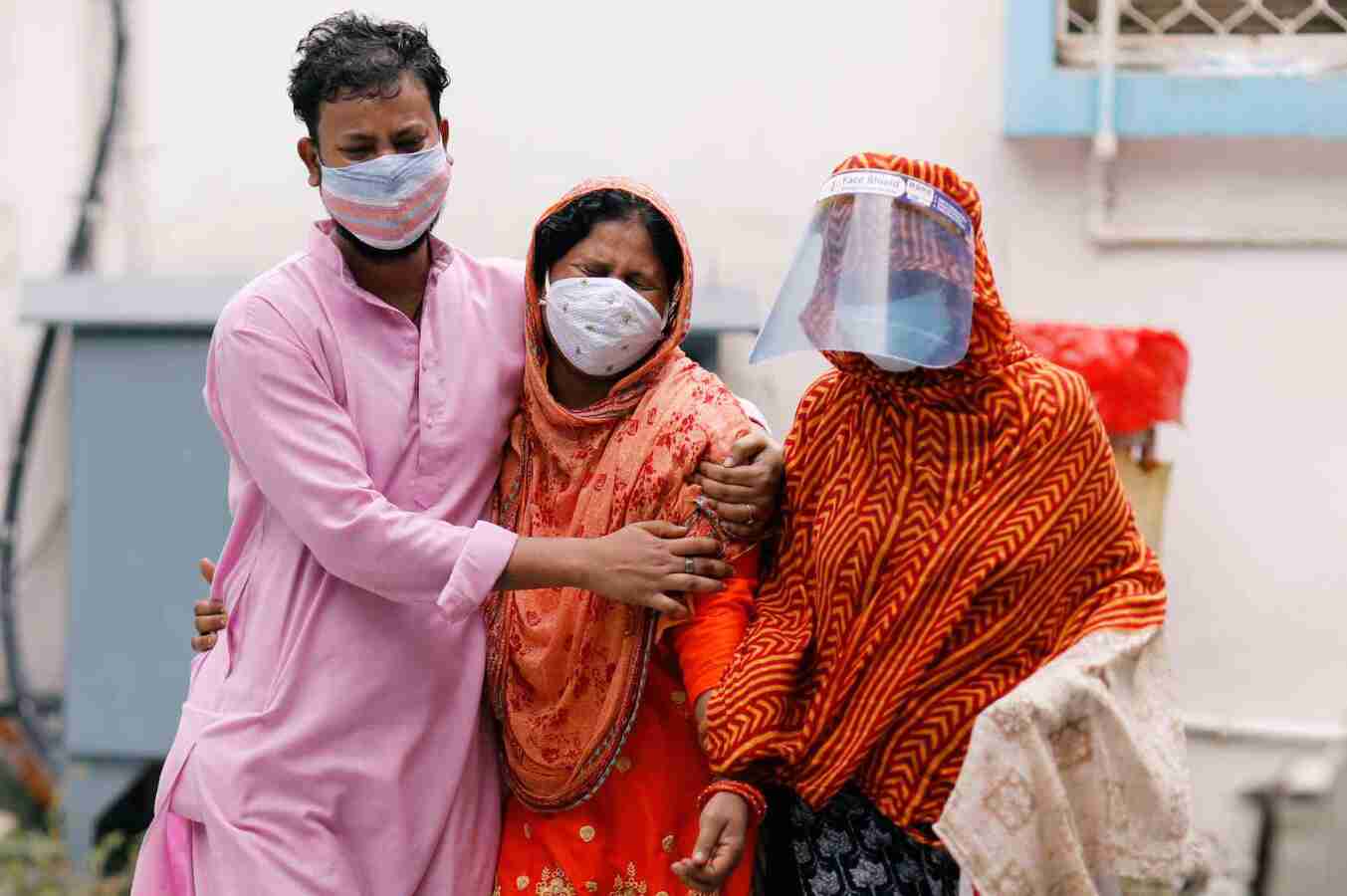Solace is all you need
An act of compassion could help the grieved to come to terms with the demise of their loved ones

India is currently grappling with the COVID-19 pandemic. The numbers have been more than 3,00,000 every day for the past two weeks. Death records have crossed 4,000-mark on particular days and averaged above 3,000 for weeks. Some reports say that in reality, we are unsure about the actual numbers.
The people who died had already borne their part of pain and suffering, but have left behind their loved ones with insurmountable grief and, in the present circumstances, immense panic. The grief factor is compounded by isolation, as there are fewer shoulders that are willing to offer relief. Neighbours, in these times, fear coming around the dead or their family members. The grief continues unhindered and unabated. Furthermore, the family members have to go through the tedious process of cremation of the dead body — standing in long queues, struggling for the spot of cremation/burial. Grief is already a breaking feel, the addition of these factors amplify the magnitude of it.
Grief is the response to loss, particularly to the loss of someone who has died, with whom there was a bond or affection. The grieving family members find it hard to cope with the loss. When people hear the word grief, they conventionally think of just the emotional turmoil, but there is also a physical, cognitive, behavioural, social, cultural, spiritual and philosophical response to grief. Unfortunately, grief is an inescapable part of life and going through emotions is the path through which one must pass.
The most popular model of grief was given by Elisabeth Kübler-Ross. It comprises of:
Denial/Shock: An absolute shock on losing the loved one. Some go into denial and act as if the deceased were still alive.
Anger: This may reflect towards the medical system, the universe or even the deceased person for not being careful about their health.
Bargaining: Making a deal with the powers of the universe to bring back the person and in exchange take whatever one can offer.
Depression: The inevitable phase of sadness causes difficulties in sleep, appetite etc.
Finally, there is an acceptance.
Many individuals hold on to extreme guilt about the decisions made for the health of the deceased. They may lament over the recent fights or even unexpressed emotions and yearn to be with the deceased.
While all emotions are valid, if a person is unable to process and navigate through the stages and move to the next, it is wise to look into grief counselling/therapy. Grief counselling is intended to help the client grieve healthily, to understand and cope with the emotions they experience, and to ultimately find a way to move on to a normal life. It focuses on feeling, talking and sharing.
The "Four Tasks of Mourning" to heal:
To accept the reality of the loss
To work through the pain of grief
To adjust to life without the deceased
To maintain a connection to the deceased while moving on with life
Here are ways you can support someone who is grieving from the loss of a loved one due to the COVID-19 pandemic:
Reach out to the grieving person. Any response is good enough. Don't hide and delay talking to them.
Don't ask the obvious question like "How are you?". Instead use a calm tone and compassionate, empathetic terms like "I am here for you", "I can't imagine how much it must be hurting". Offer hope to them.
Help them out by running small errands, making calls to others to inform them about the death, or even just assist with the meals. Listen to them instead of advising and providing solutions.
Under the extraordinary circumstances that we are facing today, there is a need for more compassion and not less. As the grieved persons pass through the stages from shock to acceptance they require to be supported and pacified in a well-designed manner. Active support from the neighbourhood can make their transition smooth and less painful.
Send your questions to [email protected]



